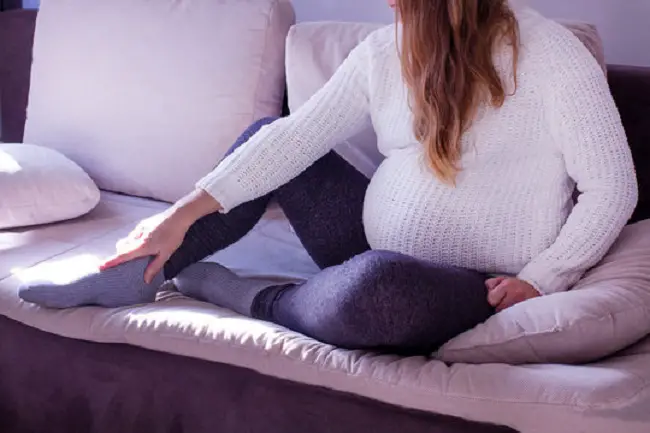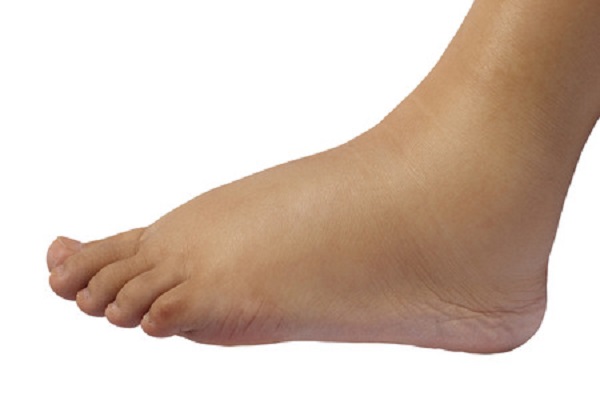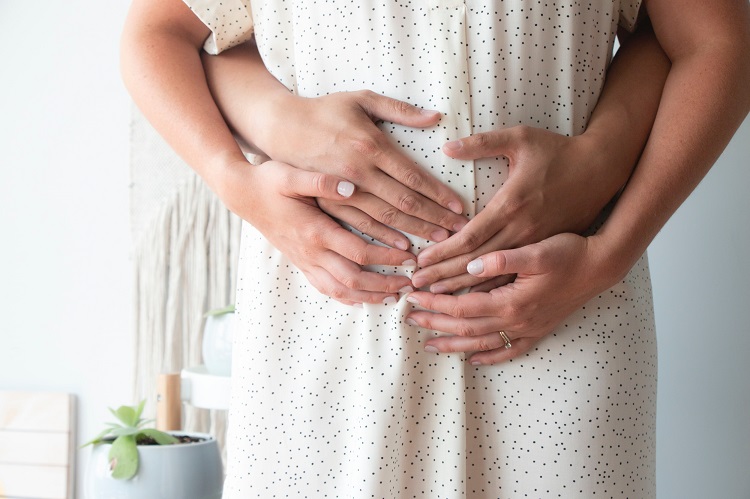During pregnancy, swelling is completely normal, but it can be pretty uncomfortable. Are you thinking of how to reduce pregnancy swelling? Sadly, you find it harder to tie your shoes than usual.
Your tummy isn’t the only thing swelling up by the day. During your pregnancy journey, you may experience mild swelling throughout your body, especially in your feet and ankles, thanks to the laws of gravity.
In this article, we will share with you lots of natural home remedies you can try to reduce your swelling and get a little more comfortable.
3 Reasons Why Women Experience Swelling During Pregnancy?
- As pregnancy progresses, the weight of the uterus, including a baby, placenta, and fluid, causes pelvic pressure that prevents the effective return of blood from the lower extremities.
- Also, pregnancy hormones cause your veins to be more relaxed, and they cannot move blood against gravity back to the heart and kidneys as well as usual. Sitting with the legs dependent for long periods, as many women do at their jobs, is a reason pregnant women have swollen ankles at the end of the day.
- More so, if you’ve rested all night sleeping in a horizontal position, your swelling is resolved, be reassured that your swelling is completely normal. Normally, women have more swelling in their ankles during the night and in their hands in the morning.
Read Also: Best Sleeping Position For Pregnant Woman
13 Practical Ways On How To Reduce Pregnancy Swelling

- Stay Hydrated: Intake of more water reduces swelling (edema). The more hydrated your body is, the less fluid your body will store in your tissues.
- Intake Of Diuretic Foods: These natural foods increase the excretion of fluids through the kidneys. These foods include asparagus, celery, artichokes, carrots, watermelon, cucumber, tomato, parsley, eggplant, cranberry juice, cabbage, apple cider vinegar, beets, ginger, Brussels sprouts, and lemon.
- Eat More Protein: Your protein intake needs to increase in the 3rd trimester to about 100 grams daily. A low level of albumin (protein) in your blood can cause lower blood osmolality (“thickness”), and this can cause fluids “leaking” out of blood vessels into surrounding tissues (edema). You should eat protein every 2-3 hours in the 3rd trimester.
- Pills: Some pills like garlic and parsley oil can also help reduce edema. This pill comes together in one gel capsule. Take 3 pills by mouth at bedtime.
- Reduce Sugar Intake: Reducing your sugar intake can help limit water retention. As you should know, all carbohydrate foods (rice, pasta, bread, grains, dessert) and fruits contain sugar. Remember, tropical fruits have higher sugar content than other fruits.
- Use Compression Stockings: Compression stockings can also help reduce pregnancy swelling. Simply put the stockings on in the morning when your lower leg swelling is decreased. This helps to keep the pressure on your legs to promote the return of blood through your veins.
- Exercise: It is best to exercise for at least 30 minutes daily. Some gentle activities like yoga or swimming are great ways to keep your body fluids circulating throughout your body, so they have less of a tendency to settle in your feet. Ensure that your exercise is doctor-approved and not too strenuous for your body!
- Immersion In Water Can Decrease Edema: Soak your feet in a bucket of warm water with some Epsom salts at the end of the day. Hydrostatic pressure then pushes fluids back into veins to be excreted. For generalized swelling, put yourself in deep water or a bathtub several times a week.
- Massage Therapy: This can also return fluid to the general circulation to help excretion through the kidneys. Choose good massage oil; you can massage your legs or have your partner do so at home.
- Shoes: Wear comfortable shoes to avoid tight straps or anything that might pinch if your feet swell. Also, avoid standing for long periods without moving.
- Prop Your Feet Up: Elevating your feet for 20 minutes at a time, three to four times a day, will help reduce swollen feet. Use cushions to prop your feet up just slightly above the level of your heart. This ensures that blood and fluid return to your heart, thereby relieving the swelling in your lower extremities.
- Sleep on your side: Try sleeping on your side (preferably your left) — it helps keep your kidneys humming along, which helps eliminate waste and reduce feet swelling during pregnancy.
- Reduce Excessive Salt Intake: Don’t go crazy with the salt shaker. Limiting salt too much increases swelling, so you shouldn’t cut it out entirely. However, it’s best to keep your intake in moderation and salt your food to taste.
The pregnancy swelling will resolve after the birth but do not be alarmed, it can worsen initially postpartum, but it will usually resolve by about 2 weeks after your birth.
Read Also: How Much Water Should I Drink While Breastfeeding?
Where And When Will Swelling Occur?

Edema affects about three-quarters of pregnant women. The swelling usually occurs only in your feet and ankles.
Your fingers might get larger enough to make any rings feel tight, but they shouldn’t be swollen.
Swelling, can start around week 22 to week 27 of pregnancy and will likely stick around until you give birth.
Due to pressure, any extra fluid in your body will dwell in your feet and ankles, especially if you spend a lot of time on your feet.
Gradual swelling isn’t death-threatening to you or your baby but can feel uncomfortable. Also, let your doctor know immediately if you notice swelling on your face, around your eyes, or if one leg is more swollen than the other.
Related Posts:
- How To Hide A Pregnancy For 9 Months
- Anxiety during pregnancy – Helpful Tips
- Foods That Make Breast Milk Taste Good
- Can I Drink Apple Cider Vinegar When Pregnant? 10 Health Benefits
Conclusion
Swelling is completely normal, especially during pregnancy, although for some, this can be pretty uncomfortable.
Thankfully, we hope this article “How to reduce pregnancy swelling” has helped you know what to look for and how to manage it to help you stay as comfortable as possible.
If you have any questions or would like to share tips and experiences on reducing pregnancy swelling, drop your comment or suggestion below. We would love to hear it.
